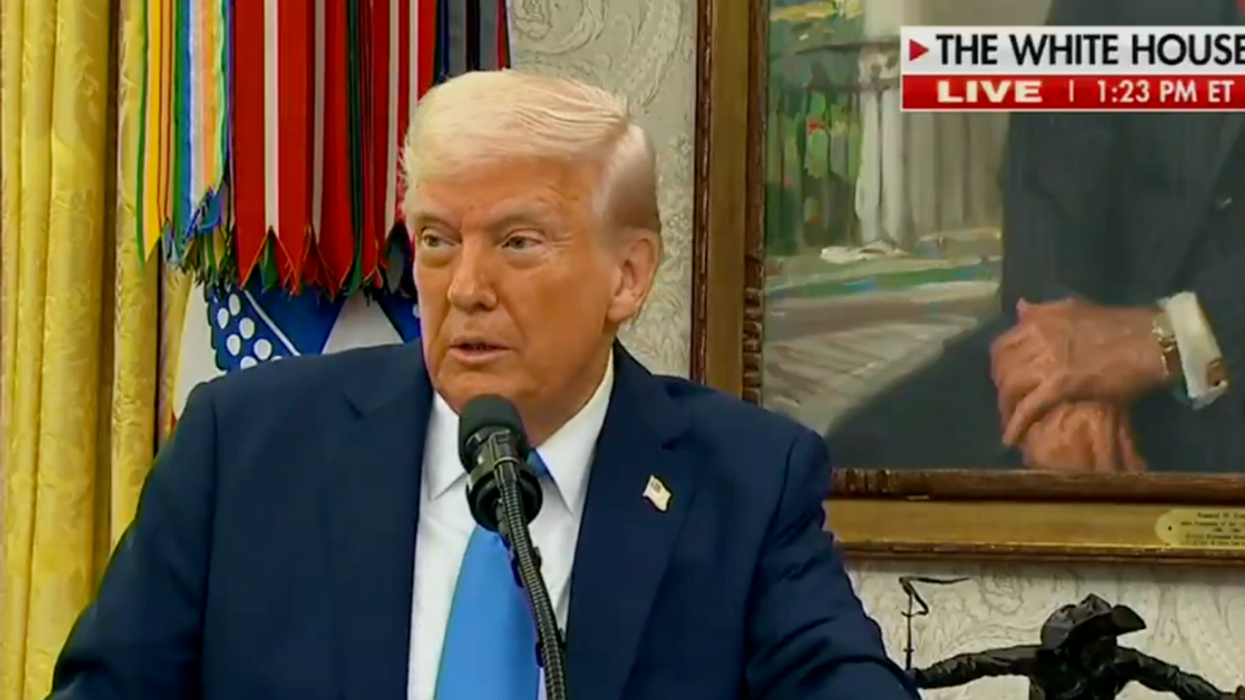Senate Democrats were accustomed to Republican Leader Mitch McConnell using the power of his majority to press forward his agenda while stymying their own. But this week, in a move that caught nearly every observer off guard, Senate Majority Leader Chuck Schumer's office scored a procedural win from the Senate Parliamentarian that has Congressional watchers both surprised and impressed.
Here's what happened.
Normally, the only two types of Senate actions that are not subject to filibuster are presidential appointments (executive and judicial) and budget bills, the latter of which are handled under a complicated procedure known as "reconciliation." Bills that are limited in scope to governmental spending, revenue, and debt ceiling limits fall under the reconciliation rules, as we just witnessed with the passage of the American Rescue Plan. Because a budget is normally only done once per fiscal year, however, the special rules forbidding filibusters usually come into play only once per fiscal year.
When no budget bill passes within a given calendar year for the following fiscal year, as was the case in late 2020 when political disputes held up the budget bill until past January 1st, Congress may take up two budget bills within the same calendar year, in this case for fiscal year 2021 in the spring and for fiscal year 2022 in the fall. That already meant that Schumer's Senate would get two bites at the golden reconciliation apple through two separate budget bills—one for the pandemic rescue and one presumably for infrastructure, with no opportunity for a Republican filibuster.
But Biden wanted more. The infrastructure bill he envisions carries two goals: "hard" infrastructure like bridges, roads, trains, wind farms, and electric car charging stations, and "soft" infrastructure like child care, health care, and community reinvestment. He also wants to make these revenue-neutral through the raising of taxes on corporations and a rollback of many of the Trump tax breaks for the wealthy. All of this meant that a lot would be riding on a single bill, later in the fall, that could rise or fall depending on whether conservative Democrats like Joe Manchin of West Virginia and Krysten Sinema of Arizona could be brought on board. The White House was eager to mitigate that risk.
Enter Schumer and his staff, who took a close look at the rules around budget reconciliation, zeroing in on something called Section 304, which provides as follows:
"At any time after the concurrent resolution on the budget for a fiscal year has been agreed to pursuant to section 301, and before the end of such fiscal year, the two Houses may adopt a concurrent resolution on the budget which revises or reaffirms the concurrent resolution on the budget for such fiscal year most recently agreed to."
Schumer's office went to the Senate Parliamentarian for an advance opinion, arguing that this provision meant that they could go back to the budget they already passed and make a revision to it, and that the same rules around cloture (meaning, no filibustering permitted) would apply.
And that is the big win that Schumer apparently obtained. According to Schumer's office, the Parliamentarian agreed that he could take the original budget resolution and simply revise it, and that the revision could contain "reconciliation instructions." In plain English, this means that the Democrats can now, in theory, make any revision they want—so long as it is limited to spending, revenue, or the debt limit—and the GOP cannot stop it through a filibuster. The Democrats can also, in theory, do so as many times as they need.
This potentially opens a wide door indeed through which Biden can now drive his agenda. He can break up his infrastructure bill into parts and have the bill first address hard infrastructure and then soft, hold back more controversial provisions until there's time to reach a compromise with conservative Democrats, and not worry that they only get one shot to pass all this before the 2022 midterm elections. He could even have the non-controversial parts (e.g. fixing roads and bridges) passed with bipartisan support and then present a smaller infrastructure package under the non-filibusterable budget rules.
In short, the arsenal of options just expanded considerably.
Skeptics point out that there are many issues still unresolved. Conservative members of the Democratic Caucus, such as Joe Manchin, have indicated that they don't want the budget process to steamroll the minority out of participation in legislation. In other words, Manchin may not be up for more than one budget bill per fiscal year. Moreover, the process of reconciliation is an arduous one, with 15 hours of debate to be held on the revised bill followed by a dreaded "vote-a-rama" where an unlimited number of amendments may be offered and then voted up or down. This process takes up valuable Senate time, and many senators will not be pleased to endure not one but two or even three more of these this year alone. But inconvenience and fatigue are likely the least of Schumer's concerns, given the ambition of Biden's plans. Schumer's office, while relishing the win, has not indicated whether it actually intends to use the new ammunition it has.
There are also built-in limitations. Most importantly, this process can't be used to advance non-budgetary bills, such as voting rights, the Equality Act, gun violence prevention, or other priorities of the Democrats. Biden may be betting that the biggest impact from his presidency may be in massive reinvestment into the working and middle classes, not only through pandemic relief but through his American Jobs Act relating to infrastructure. If he can deliver, he might be able to hold the House and win enough Senate seats to be able to change the filibuster rules in 2023.
So where does this leave the minority and its leader? In response to the ruling, McConnell's office was visibly perturbed. Per The Hill, a GOP aide quipped:
"This is an abuse of the process and clearly not what reconciliation was designed to do, but they're going to go forward anyway."
That criticism must ring ironic to many Democrats, given the accusation of abuse of process leveled by the GOP on the matter of Supreme Court confirmations. But Majority Leader Schumer, clearly pleased, stayed on message: "The American people want bold action to address our country's many challenges, and Democrats now have more options to overcome Republican obstruction and get things done."













 @FrankC164/X
@FrankC164/X
 AMC
AMC
